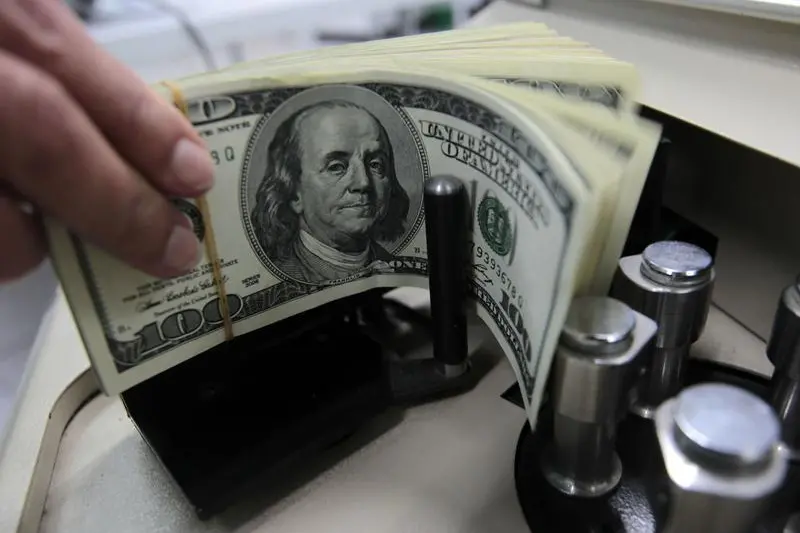PHOTO
NEW YORK - The dollar fell against a basket of other currencies on Wednesday as investors pared safe-haven holdings of the greenback following a report that senior U.S. officials were seeking to jumpstart trade talks with China.
The U.S. currency also came under pressure from a rebound in the euro and sterling after pro-Brexit lawmakers in British Prime Minister Theresa May’s party publicly pledged support for her despite disagreeing with her Brexit proposals.
“We have a lot of Brexit headlines in recent days which are conciliatory,” said Paresh Upadhyaya, director of currency strategy at Amundi Pioneer Investments in Boston. “The dollar was also pressured by the news of a U.S. proposal to renew trade talks with China.”
Senior U.S. officials led by Treasury Secretary Steven Mnuchin sent invitations to their counterparts in Beijing proposing another round of bilateral trade talks, the Wall Street Journal reported on Wednesday.
Anxiety about the escalating U.S.-China trade conflict has hurt the yuan CNH=EBS and emerging market currencies as U.S. President Donald Trump has threatened to impose more tariffs on Chinese imports in a bid to address a record U.S. trade deficit with China.
An index that tracks the greenback against the euro, yen, sterling and three other currencies .DXY was down0.49 percent at 94.787.
Sterling GBP=D3 was up 0.18 percent at $1.3056, not far below a five-week high of $1.3087 set on Tuesday.
The euro was up 0.26 percent at $1.16350 EUR=EBS and was little changed at 89.05 pence EURGBP=D4.
ECB, BOE MEETINGS
The euro climbed ahead of an European Central Bank meeting. Traders sought to exit some bearish bets on the single currency, which fell earlier on Wednesday on reports that ECB policymakers will trim their growth forecasts at their meeting on Thursday, analysts said.
The ECB and the Bank of England, which will also hold a policy meeting on Thursday, are widely expected to leave interest rates unchanged.
The dollar's weakness helped emerging markets recover from their earlier losses when the Indian rupee INR= hit an all-time low at 72.91 per U.S. dollar.
Earlier Wednesday, the U.S. Labor Department said the producer price index unexpectedly fell 0.1 percent in August, marking its first decline in 1-1/2 years.
The Federal Reserve’s latest Beige Book showed the U.S. economy grew at a moderate pace in recent weeks even as businesses worried about international trade tensions.
Fed policymakers are widely to raise short-term borrowing costs at their upcoming meeting on Sept. 25-26.
Reporting by Saikat Chatterjee in LONDON; additional reporting by Daniel Leussnik in TOKYO; Editing by Larry King and Alison Williams
© Reuters News 2018




















